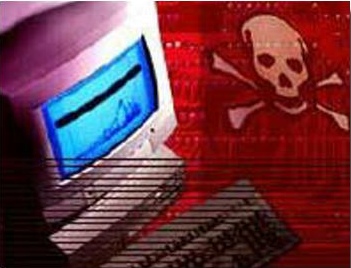Many New PCs in China Come With Malware Preinstalled
In China, there is not much you have to do to contract a virus on your PC. Plus, you have a one in five chance that you will get that first virus on your brand new PC right out of the box.
Microsoft revealed this finding in a new whitepaper and attributes the high rate of infections of PCs to a shaky supply chain structure that does not prevent the presence of counterfeit products. To lower the cost of a new PC, potentially compromised products are sometimes knowingly accepted. It does not take much to see that this scenario is a goldmine for malware makers and allows the malware business to flourish.
In its whitepaper Microsoft said that in some instances malware strains were contacting a known malware hosting source, 3322.org, and added infected PCs to the Nitol DDoS botnet. There were "500 different strains of malware hosted on more than 70,000 subdomains," Microsoft said.
Following its discovery, Microsoft acquired control of the domain via a court order on September 10. In addition to Nitol, Microsoft said that it also found malware "capable of remotely turning on an infected computer’s microphone and video camera, potentially giving a cybercriminal eyes and ears into a victim’s home or business", as well as malware "that records a person’s every key stroke, allowing cybercriminals to steal a victim’s personal information."
Microsoft said that its recent actions will "reduce the impact of the menacing and disturbing threats associated with Nitol and the 3322.org domain". However, there is no effect on the overall infrastructure how malware finds its way into the supply chain. This case is clearly limited to China, but given the increasing concern about counterfeit products, it may be a smart move and common sense to run an anti-malware scan on your next new PC when you turn it on for the first time. Just in case.
Contact Us for News Tips, Corrections and Feedback
Get Tom's Hardware's best news and in-depth reviews, straight to your inbox.

Wolfgang Gruener is an experienced professional in digital strategy and content, specializing in web strategy, content architecture, user experience, and applying AI in content operations within the insurtech industry. His previous roles include Director, Digital Strategy and Content Experience at American Eagle, Managing Editor at TG Daily, and contributing to publications like Tom's Guide and Tom's Hardware.
-
waynewarrior78 The first thing I have to do (and I imagine most people on this site) when I buy a new laptop or phone is completely reformat and install the OS due to the incredible amount of bull crap they install on it for you. My asus laptop and Skyrocket phone were useless day 1, awesome day 2 :DReply
-
stingstang rantocBlock the whole .cn ip range seems more and more like a clever move!I made a petition, posted it in the comments of a few "China hackers..." articles, and no one signed it. Maybe everyone's too scared, which means it's too late.Reply -
Pennanen waynewarrior78The first thing I have to do (and I imagine most people on this site) when I buy a new laptop or phone is completely reformat and install the OS due to the incredible amount of bull crap they install on it for you. My asus laptop and Skyrocket phone were useless day 1, awesome day 2Funny thing, all the bloatware that prebuilt pcs and laptops have make the pc slower than if it was infected.Reply -
digiex stingstangAnyone else for cutting China off the internet?China is cut from the internet from the inside, except the government sponsored hackers spying from corporations, advance military to cut short their R&D.Reply -
willard mavroxurHP/Compaq have been doing this since the 90'sAhh, bringing back memories. Who didn't love getting a new computer with a shiny new copy of Windows Me installed and two dozen HP programs you couldn't remove to "help" you by consuming all of your whopping 128MB of memory.Reply
